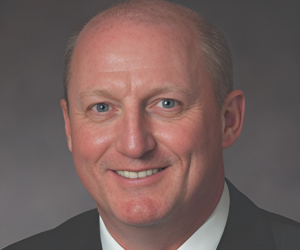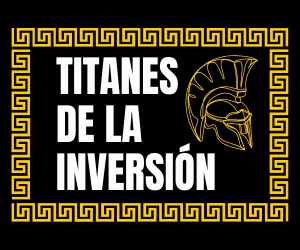Discover Dennis Hong's impact on the investment world, his winning strategy, and the role of ShawSpring Partners. Transforming the tech sector, one step at a time.
Home
»
Investments
»
WHO IS GREG ABEL: NEW CEO OF BERKSHIRE HATHAWAY
Greg Abel, born in Edmonton (Canada), is the low-profile executive who will take the reins of Berkshire Hathaway in 2026, replacing the legendary Warren Buffett. With over 30 years of experience in the energy sector and more than two decades within the Berkshire ecosystem, Abel has demonstrated an uncommon ability to operate with discipline, read metrics like a surgeon, and stay out of the spotlight while transforming businesses. This article delves into his career, leadership style, challenges, and why Buffett called him "the only choice" to succeed him.

From Edmonton to Buffett's Circle
Greg Abel was born in 1962 in Edmonton, Alberta, a city better known for hockey than for producing business titans. In 1984, he graduated with honors in accounting from the University of Alberta, a technical path that defined his professional approach: precision, control, humility. He began his career at PricewaterhouseCoopers before entering the energy sector through CalEnergy, a company that eventually led him to the Buffett universe.
In 1992, Abel joined MidAmerican Energy. When Berkshire Hathaway acquired that company in 1999, his rise within the conglomerate began. He became president in 1998, CEO in 2008, and under his leadership, MidAmerican transformed into Berkshire Hathaway Energy (BHE), a giant that today generates nearly 10% of all wind energy in the United States.
An Ascent Based on Results, Not Public Relations
While other executives might have used that transformation as a media springboard, Abel maintained a low profile. He doesn't seek cameras, publish viral quotes, or attend Davos. He prefers a well-structured spreadsheet to an interview. This same executive coolness is what captivated Buffett.
Under his management, BHE became one of the most efficient utilities in the U.S.
He established an accountability system with weekly operational metrics.
He maintained margins above 20% across all market cycles.
He achieved growth without excessive leverage or unnecessary acquisitions.
Abel didn't reach the top because he knew how to sell himself, but because he delivered sustained results over decades. As a financial meme would say: “When your KPIs speak louder than your LinkedIn.”
Direct Connection with Buffett
Buffett has always valued quiet meritocracy. In interviews, he has emphasized how Abel came prepared to every meeting, questioned every metric, and challenged decisions with elegance and data. In 2021, when asked who his successor would be, Buffett responded: “Greg. I don't have a plan B.”
The trust was built over years. It wasn't a sudden selection. It was a steadily ascending track record, silent but relentless.
The Structure He Manages at Berkshire
Since 2018, Greg Abel has been the Vice Chairman in charge of all non-insurance operations at Berkshire Hathaway. This includes more than 189 subsidiaries in sectors such as transportation, manufacturing, energy, retail, and industrial services. The diversity and complexity of the portfolio he oversees is worthy of a nation, not a company.
Giants Under His Control
Some of the companies under Abel's wing include:
BNSF Railway: the largest freight railroad network in the U.S.
Berkshire Hathaway Energy: with renewable energy projects in 11 states.
Duracell, NetJets, Dairy Queen, and See’s Candies.
Over 100 manufacturing firms, from Precision Castparts to Lubrizol.
During the first quarter of 2025, this non-insurance conglomerate generated over $5 billion in earnings. It's a testament to its efficiency: Abel oversees with a mix of radical autonomy and rigorous reporting.
International Expansion and Internal Discipline
Abel also led Berkshire's strategic entry into five Japanese sōgō shōsha (Mitsubishi, Itochu, Marubeni, Mitsui, Sumitomo). A move seen as quiet yet brilliant: well-valued purchases, low leverage, and high dividend yield.
Additionally, he implemented an internal scorecard system for the portfolio companies, where each unit must report monthly results with uniform KPIs. Consulting style? No. Abel style. Execution over aesthetics.
Can He Maintain Buffett's Legacy?
The challenge Greg Abel faces is unprecedented: replacing Warren Buffett is not just about taking a seat, it's about taking the reins of a living myth of capitalism. However, Abel has something few successors have: unwavering trust from his predecessor, the respect of the board, and a hard-to-question track record.
Different style, same compass
Abel will be more direct and operational, less philosophical and media-focused.
He will seek efficiency without touching the decentralization that defines Berkshire.
He is committed to rational capital allocation, not speculation.
Abel is not trying to be another Buffett. He has said it himself: “My job is not to imitate him, but to preserve what he built.”
Personal life and recognition
He resides in Des Moines, Iowa. He is a hockey enthusiast, leads an austere lifestyle, and avoids the limelight. His net worth is around a billion dollars, and he serves on the boards of Kraft Heinz, Drake University, and the Boy Scouts of Mid-Iowa. Colleagues describe him as methodical, tireless, and reserved.
When Buffett says: “Berkshire is fortunate to have him,” it's not an empty phrase. It is the final verdict of one of the best judges of business talent.
Risks on the horizon
Abel will have to navigate an uncertain context: persistent inflation, tensions with China, unpredictable elections in the US, and disruptive advances like AI. Additionally, some shareholders fear losing Buffett's unique “intuition” for spotting bargains.
But if Greg Abel has demonstrated anything, it's that he doesn't need mystical intuition to build empires. He relies on operational discipline, strategic thinking, and an almost scientific obsession with details.
The market is no longer just looking for visionaries. It seeks executors. And in that game, Abel is elite.
YOU MAY ALSO BE INTERESTED







